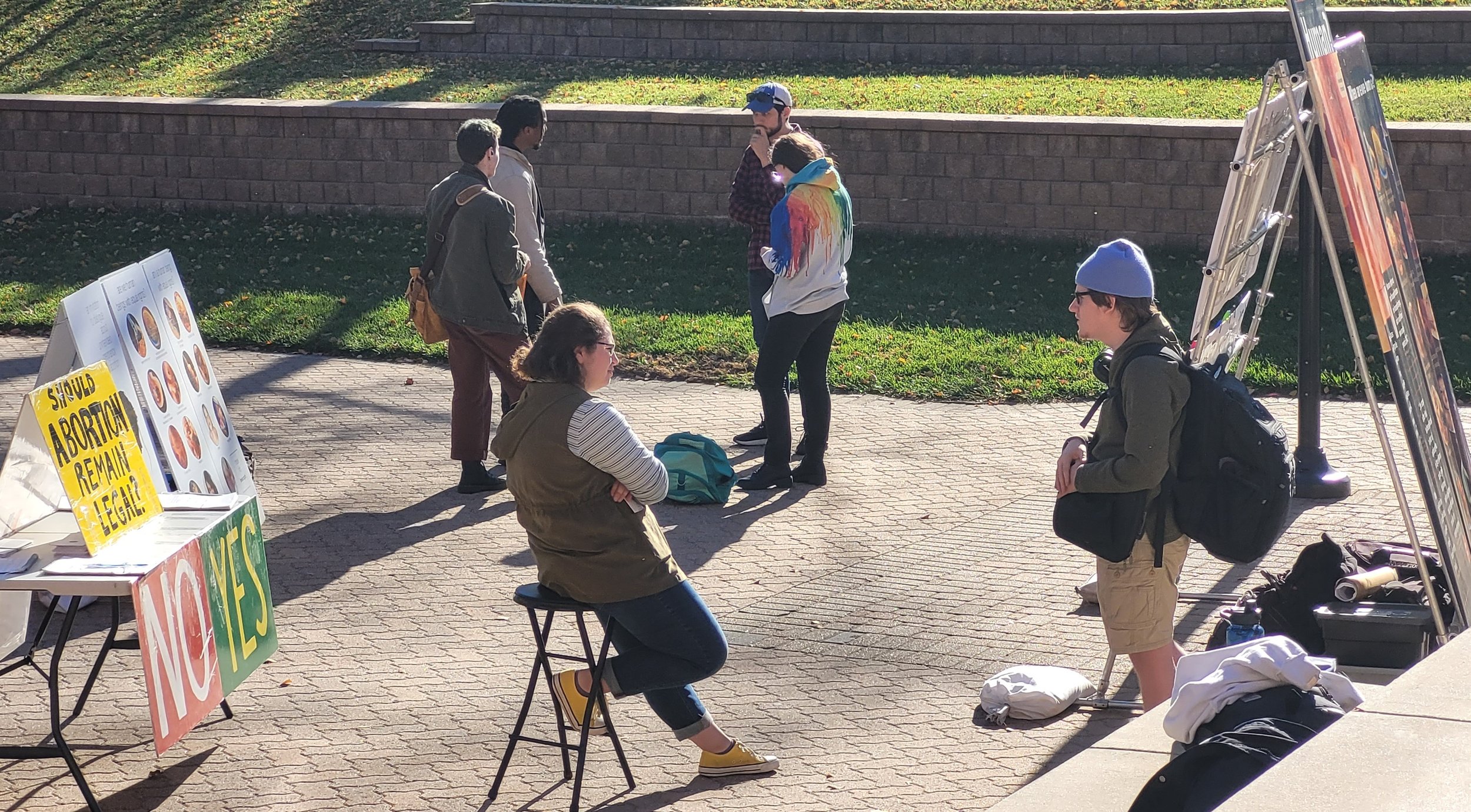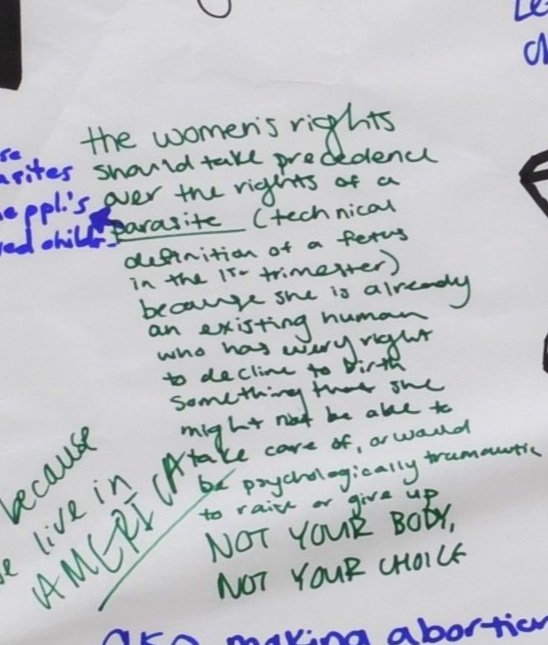Free Speech Board comment at the University of Kansas.
“The fetus is just a parasite.” Some pro-choice advocates make this claim, and they can mean very different things by referring to unborn children as “parasites”. A student at Kansas University wrote the following:
The women’s rights should take precedence over the rights of a parasite (technical definition of a fetus in the 1st trimester) because she is already an existing human who has every right to decline to birth something that she might not be able to take care of, or would be psychologically traumatic to raise or give up. NOT YOUR BODY, NOT YOUR CHOICE.
Let’s break down some aspects of this comment:
“The women’s rights should take precedence over the rights of a parasite (technical definition of a fetus in the 1st trimester)…” If after asking clarification questions you find that the person is using the parasite language in a biological sense, it’s important to point out that fetuses do not fit the scientific criteria for parasitism. JFA Trainer Rebekah Dyer notes this in her article Human Fetuses are Not Parasites:
fetuses do “not match the biological definition of a parasite. 'Biologically defined, parasitism is a “form of symbiosis in which one organism (called a parasite) benefits at the expense of another organism usually of different species (called a host). This host-parasite association may eventuate to the injury of the host.' In order to understand the relationship between mother and fetus, we need to look at the various types of symbiosis. There are three kinds of symbiosis: commensalism, mutualism and parasitism. In commensalism, only one species benefits while the other is neither harmed nor benefited. In mutualism, both partners benefit. In parasitism, one organism benefits while the other suffers harm."
The parasite claim is often complex and the person using the term can mean different things by it. Sometimes the person doesn’t mean it in a biological sense at all. Rebekah Dyer’s second article on the parasite term goes more into depth on this aspect of the “parasite” claim some pro-choice advocates make, and she provides insight on how to navigate that in conversation.
Note that the writer of this comment states that the woman is “already an existing human” implying the additional phrase, “unlike the unborn who is not an existing human yet.” But this is merely an assumption. It begs the central question “What is the unborn?” Then the comment concludes with a bodily rights statement at the end.
To learn how to respond to comments like these, sign up for our Love3 Workshops.







